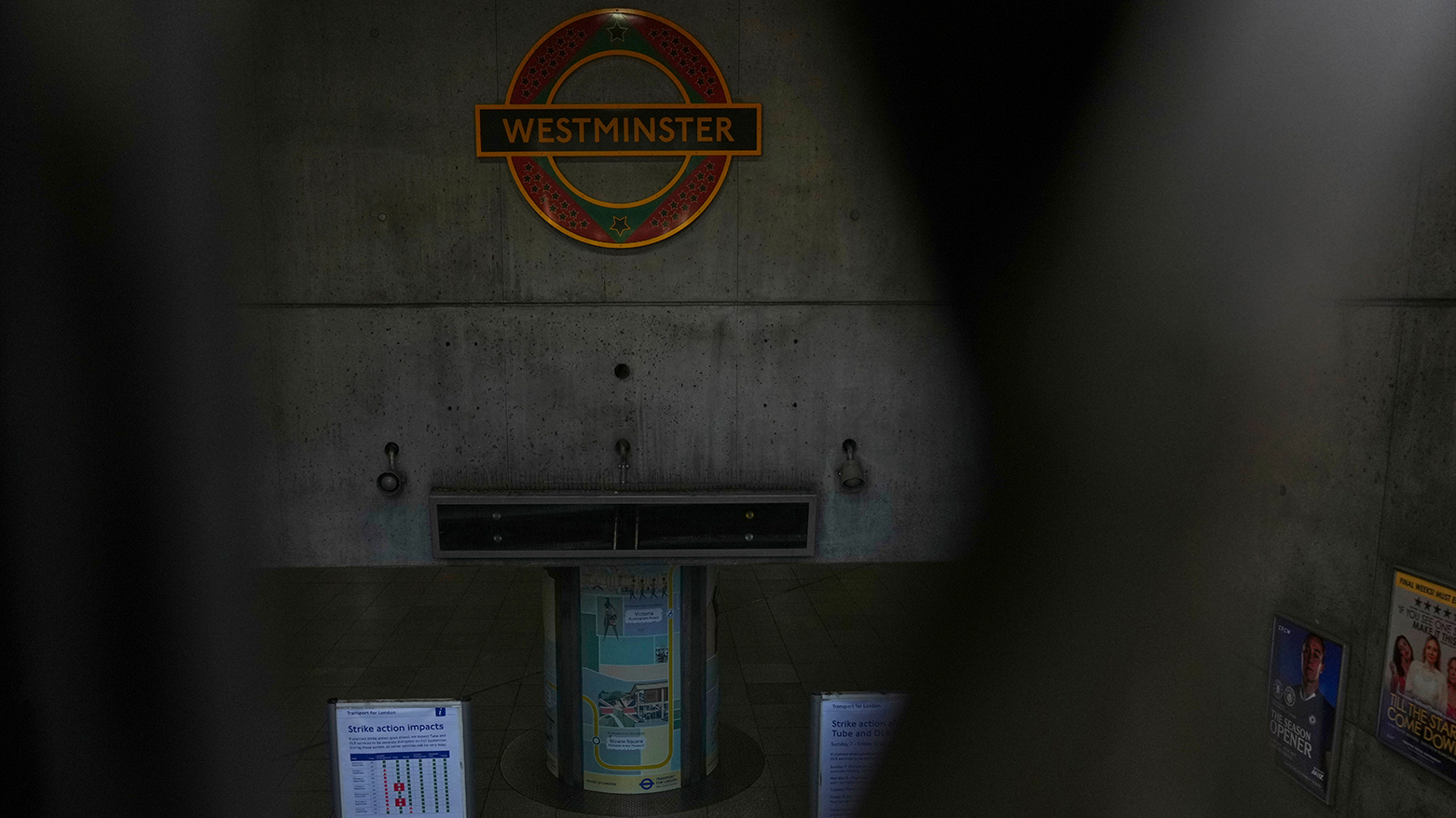London Underground Shuts Down as 10,000 Employees Strike Over Working Hours
Kurdistan24’s UK correspondent reports nearly 10,000 London Underground staff are on strike, suspending all Tube services. They demand a 32-hour week over a pay rise, citing exhaustion. The stoppage has caused severe travel chaos and major financial losses.

ERBIL (Kurdistan24) – The vast and vital London Underground network, one of the world's most extensive public transit systems, has been brought to a near-total standstill after nearly 10,000 of its employees launched a general strike over demands for a shorter working week, causing the suspension of all Tube journeys and inflicting widespread disruption across the British capital. The industrial action, which commenced on September 7, 2025, is centered on the employees' insistence on reducing their work schedule from 35 to 32 hours, a condition they have prioritized over a proposed salary increase, citing the tiring nature of their current conditions.
The industrial action, which began on Sunday and is expected to shut down nearly all Tube services until Friday morning, has created a ripple effect across the city's transport infrastructure.
On Tuesday, as the strike entered its second full day, the disruption was compounded by a walkout of Docklands Light Railway (DLR) staff, who are also scheduled to strike again on Thursday, as reported by the BBC.
The city's transport authority has confirmed that while buses, the Elizabeth Line, and London Overground services are still operating, they are experiencing significant crowding. In response to the gridlock, the BBC also noted that e-bikes have seen a significant increase in the number of trips as Londoners seek any viable alternative.
The strike has plunged London into a state of travel chaos, a scene also reported by The New York Times, which described shuttered stations and crammed buses as millions of travelers were affected.
The core of the dispute lies not in wages but in working conditions and employee well-being. Despite the government and Transport for London (TfL), the city's transit authority, showing readiness to increase employee salaries by a rate of 3.4 percent, the striking workers have remained firm in their primary demand.
They argue that a reduction in working hours is a more pressing priority than a pay rise. This stance is rooted in significant changes to the workforce over the past several years. Since 2018, the London Underground has laid off nearly 2,000 of its employees in a strategic move aimed at reducing costs.
This reduction in personnel has, according to the striking workers, led to a significant increase in the burden on the shoulders of the employees who remain on the job. In response, they are now demanding that the transit authority hire more employees to make a reduction in their individual working hours feasible.
The National Union of Rail, Maritime and Transport Workers (RMT) has articulated a case that goes beyond simple scheduling, arguing that the well-being of its members is at stake.
The New York Times report detailed the union's arguments that the health and life expectancy of its members are negatively affected by the irregular and antisocial shift patterns, with some shifts beginning as early as 4 a.m. and others concluding at 1 a.m., often spent entirely underground without access to natural light.
Further concerns cited by the union include exposure to dust particles within the tunnel system and the significant psychological toll of suicides that occur on the network.
Transport for London has unequivocally rejected the union’s demands regarding working hours, labeling them as unfeasible.
In a statement reported by The New York Times, the transit authority said, "Any reduction in working hours is impractical and absolutely unaffordable, with costs that could run into the hundreds of millions of pounds." TfL maintains that its offer of a 3.4 percent pay increase, which it noted was in line with inflation in February, is a "fair offer."
Claire Mann, the chief operating officer for TfL, has publicly called on the union to suspend the strike and to present the pay offer directly to its members for a vote.
The economic fallout from the multi-day stoppage is expected to be severe. The suspension of Tube journeys, which typically number nearly four million daily, has caused significant damage to both companies and citizens across the British capital.
According to a report from Kurdistan24's UK correspondent, Dilovan Emadaldin, the financial losses from a stoppage lasting several days are projected to be a staggering 230 million pounds. The vital tourism sector is also expected to suffer, with an additional estimated loss of 110 million pounds.
With the strike scheduled to continue until their demands are met, the prospect of an imminent resolution appears slim.
A union organizer, speaking to the BBC, warned that more industrial action could be on the cards if a settlement is not reached, signaling a potentially prolonged period of conflict.
The standoff between the union's focus on employee well-being and the transport authority's financial and operational concerns leaves millions of people navigating a city in logistical disarray.
Kurdistan24's UK correspondent Dilovan Emadaldin contributed to this report.
